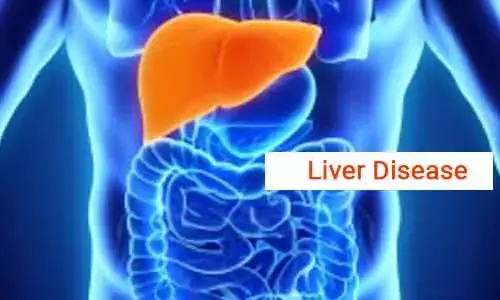- Home
- Medical news & Guidelines
- Anesthesiology
- Cardiology and CTVS
- Critical Care
- Dentistry
- Dermatology
- Diabetes and Endocrinology
- ENT
- Gastroenterology
- Medicine
- Nephrology
- Neurology
- Obstretics-Gynaecology
- Oncology
- Ophthalmology
- Orthopaedics
- Pediatrics-Neonatology
- Psychiatry
- Pulmonology
- Radiology
- Surgery
- Urology
- Laboratory Medicine
- Diet
- Nursing
- Paramedical
- Physiotherapy
- Health news
- Fact Check
- Bone Health Fact Check
- Brain Health Fact Check
- Cancer Related Fact Check
- Child Care Fact Check
- Dental and oral health fact check
- Diabetes and metabolic health fact check
- Diet and Nutrition Fact Check
- Eye and ENT Care Fact Check
- Fitness fact check
- Gut health fact check
- Heart health fact check
- Kidney health fact check
- Medical education fact check
- Men's health fact check
- Respiratory fact check
- Skin and hair care fact check
- Vaccine and Immunization fact check
- Women's health fact check
- AYUSH
- State News
- Andaman and Nicobar Islands
- Andhra Pradesh
- Arunachal Pradesh
- Assam
- Bihar
- Chandigarh
- Chattisgarh
- Dadra and Nagar Haveli
- Daman and Diu
- Delhi
- Goa
- Gujarat
- Haryana
- Himachal Pradesh
- Jammu & Kashmir
- Jharkhand
- Karnataka
- Kerala
- Ladakh
- Lakshadweep
- Madhya Pradesh
- Maharashtra
- Manipur
- Meghalaya
- Mizoram
- Nagaland
- Odisha
- Puducherry
- Punjab
- Rajasthan
- Sikkim
- Tamil Nadu
- Telangana
- Tripura
- Uttar Pradesh
- Uttrakhand
- West Bengal
- Medical Education
- Industry
CDC recommends Hepatitis C screening for all adults

The Centers for Disease Control and Prevention now recommends that all adults aged 18 and older be screened at least once for hepatitis C virus (HCV) infection, and that all pregnant women be screened during each pregnancy.
Hepatitis C virus (HCV) infection is a major source of morbidity and mortality in the United States. HCV is transmitted primarily through parenteral exposures to infectious blood or body fluids that contain blood, most commonly through injection drug use. No vaccine against hepatitis C exists and no effective pre- or postexposure prophylaxis is available
Recommendations-
Universal hepatitis C screening (new recommendations):
Hepatitis C screening at least once in a lifetime for all adults aged ≥18 years, except in settings where the prevalence of HCV infection (HCV RNA-positivity) is <0.1%
Hepatitis C screening for all pregnant women during each pregnancy, except in settings where the prevalence of HCV infection (HCV RNA-positivity) is <0.1%
One-time hepatitis C testing regardless of age or setting prevalence among persons with recognized conditions or exposures (existing recommendations):
Persons with HIV
Persons who ever injected drugs and shared needles, syringes, or other drug preparation equipment, including those who injected once or a few times many years ago
Persons with selected medical conditions, including persons who ever received maintenance hemodialysis and persons with persistently abnormal ALT levels
Prior recipients of transfusions or organ transplants, including persons who received clotting factor concentrates produced before 1987, persons who received a transfusion of blood or blood components before July 1992, persons who received an organ transplant before July 1992, and persons who were notified that they received blood from a donor who later tested positive for HCV infection
Health care, emergency medical, and public safety personnel after needle sticks, sharps, or mucosal exposures to HCV-positive blood
Children born to mothers with HCV infection
Routine periodic testing for persons with ongoing risk factors, while risk factors persist:
Persons who inject drugs and share needles, syringes, or other drug preparation equipment
Persons with selected medical conditions, including persons who ever received maintenance hemodialysis
Any person who requests hepatitis C testing should receive it, regardless of disclosure of risk, because many persons might be reluctant to disclose stigmatizing risks
The recommendations, published in MMWR Recommendations and Reports, do not apply to adults and pregnant women in areas where the prevalence of HCV infection is below 0.1%. However, the agency notes that no state has a prevalence in adults below that threshold, according to NHANES data, and birth certificate data suggest that just three states have a prevalence that low among pregnant women.
The authors have advised that "health care providers should initiate universal hepatitis C screening until they establish that the prevalence of HCV RNA positivity in their population is <0.1%, at which point universal screening is no longer explicitly recommended but might occur at the provider's discretion."
MMWR Recommendations and Reports article
Dr Kamal Kant Kohli-MBBS, DTCD- a chest specialist with more than 30 years of practice and a flair for writing clinical articles, Dr Kamal Kant Kohli joined Medical Dialogues as a Chief Editor of Medical News. Besides writing articles, as an editor, he proofreads and verifies all the medical content published on Medical Dialogues including those coming from journals, studies,medical conferences,guidelines etc. Email: drkohli@medicaldialogues.in. Contact no. 011-43720751


